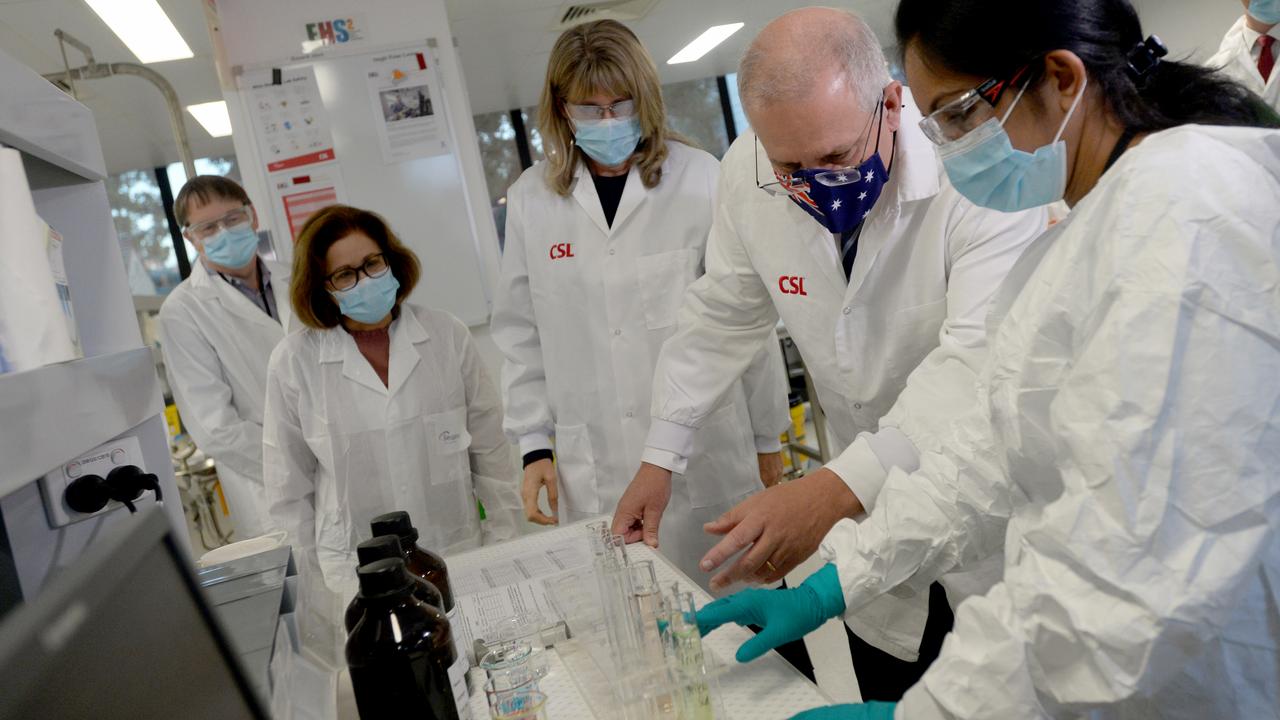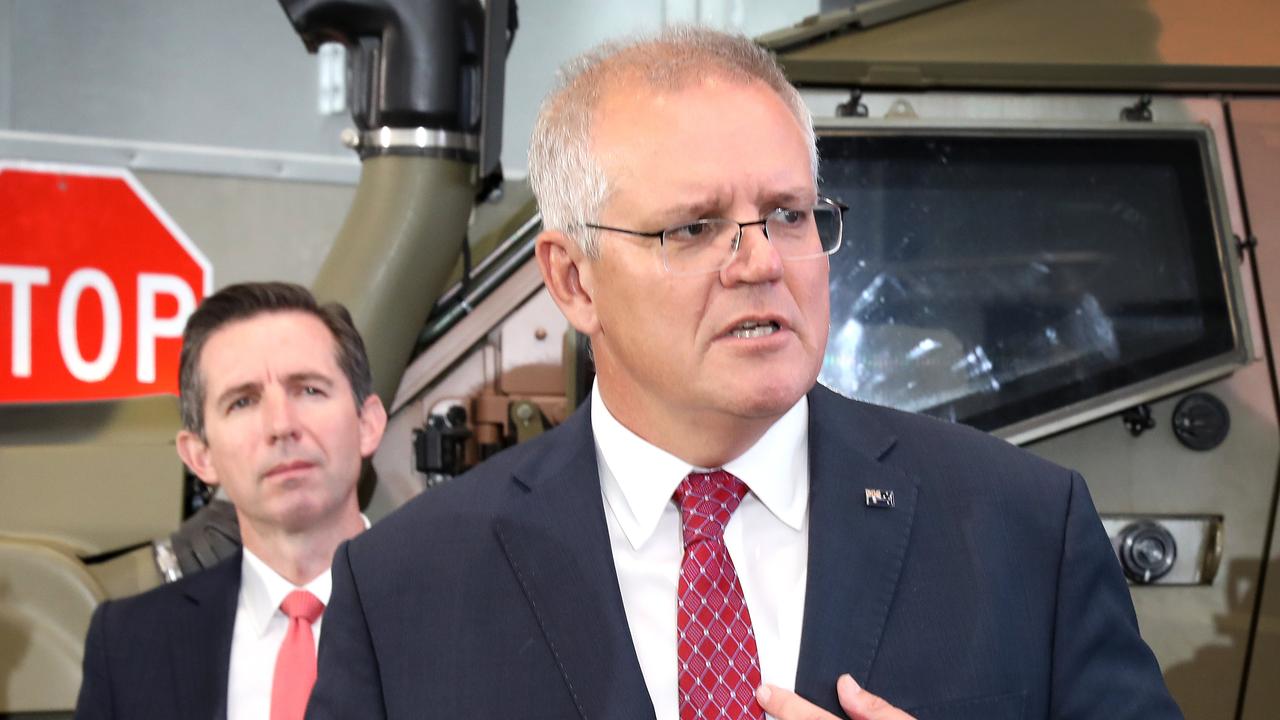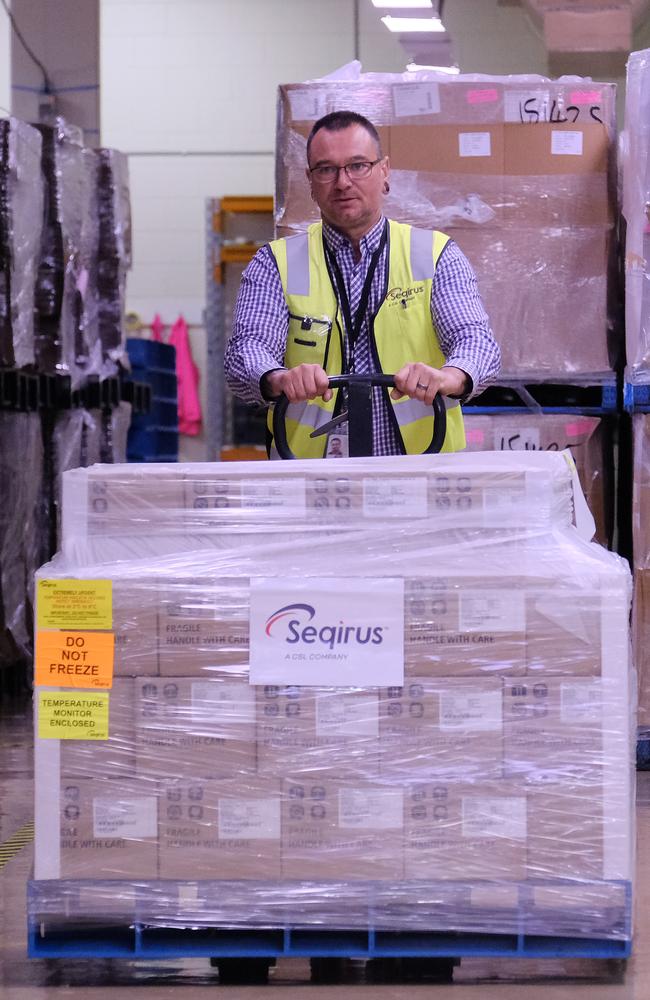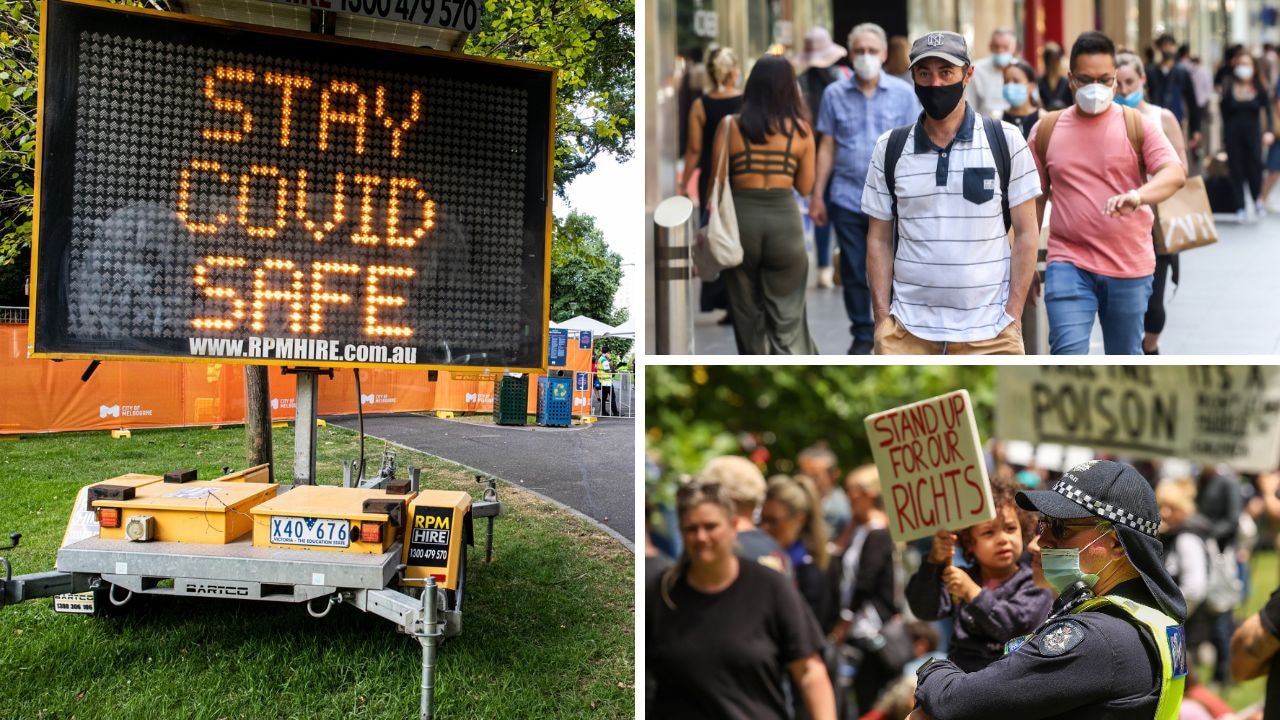PM needs to accept Australia’s COVID-19 vaccine rollout is an ‘unmitigated disaster’, experts say
Scott Morrison is desperately pretending a major crisis isn’t happening, as Australia is shamed by the world on a crucial measure in the fight against COVID.

Yesterday, four million Americans received a dose of the COVID-19 vaccine as the country continues to rapidly accelerate its rollout.
By comparison, that’s the same number of Australians who were meant to have gotten a jab by the end of March … a target that the Government fell short of by 3.4 million people.
Just two per cent of Australians have received a jab so far, compared to 30 per cent of the US population and 46 per cent of people in the UK.
A number of frontline health workers, hotel quarantine workers and vulnerable aged care residents remain unvaccinated, despite the significant risks.
Supply from overseas has dwindled, distribution of what the country does hold has been marred by issues, communication between authorities and the GPs tasked with administering jabs is chaotic, and fury is growing, experts say.
Instead of seeking solutions, critics accuse Prime Minister Scott Morrison of being distracted by politics and a petty blame game while still insisting that all is going well despite mounting evidence to the contrary.
RELATED: Work begins on COVID vaccine in pill form
By the time the US, UK and major European Union nations were six weeks into their respective schemes, those countries had vaccinated several times more people.
When pressed on why the program began so late and has been plagued by so many issues, the Prime Minister has repeated his mantra: “It’s not a race.”
But this overly casual attitude is one of four major mistakes the Government has made, argues Stephen Duckett, director of the Grattan Institute’s health program, who describes the vaccine rollout as “overhyped and underdelivered”.
Lack of urgency has marred vaccination rollout
This year began with Australia having virtually eliminated the local transmission of COVID-19, allowing life to begin returning to normal.
It should have been the time to make hay while the sun was shining, but instead a lack of urgency took hold that continues to this day.
“It’s a marathon, not a sprint,” Health Minister Greg Hunt, like the PM, has said on a multiple occasions.
But as Australia has discovered, hotel quarantine outbreaks can occur, plunging cities – or large chunks of them – into costly and debilitating lockdowns or sparking border closures.
“Vaccination delays slow border reopenings and economic recovery,” Mr Duckett wrote in analysis for The Conversation.
RELATED: When you’re most likely to have vaccine side effects

Instead of four million Aussies getting a jab by last week as promised, the figure was just 600,000 and Health Minister Greg Hunt won’t say when everyone in the first groups will be vaccinated.
That’s not to mention the second major group of intended recipients, covering some six million Australians, who were “encouraged to call their GP to organise a vaccination”, Mr Duckett said.
“(Greg Hunt) made this announcement knowing Australia didn’t have enough vaccines to meet demand.
“GPs hadn’t been warned of the impending tsunami of calls, nor did they know how many doses they would get and when. The Federal Government didn’t have a robust logistics system to ensure the right doses got to the right places at the right times. GPs were, rightly, extremely angry.
“The logistics nightmares continue, with the Federal Government persistently failing to provide clarity about dose distribution to either states or GPs.”
At a media conference yesterday, Mr Hunt couldn’t say when everyone in the first two groups – health workers, hotel quarantine staff and aged care residents – would get their first jabs.
He also seemingly backed away from another of the Government’s major commitments – that every Aussie who wants a COVID-19 jab will have it by October.
“As to the rate … that will depend simply on the supply,” Mr Hunt said when pressed on the timeline.
“The supply at this stage is looking strong. We are in a very fortunate position given the global circumstances (and) with our (locally made AstraZeneca) production.”
Those firm commitments are now a thing of the past, it seems.
Rollout politicised as critics take aim at Morrison
In a scathing editorial for The Sydney Morning Herald today, the rollout was described as an “unmitigated disaster” that Scott Morrison must now stop pretending is going well.
In it, UNSW economics professor Richard Holden and Steven Hamilton, chief economist at the Blueprint Institute and an assistant professor at George Washington University, wrote that “there’s simply no time to waste”.
The states need full autonomy to run their rollouts, the Commonwealth should employ greater transparency on how many doses are sent where and when, distribution channels need to be expanded and supply must be “radically ramped up, no matter the cost”, they argued.
RELATED: Elderly struggle to book COVID vaccine appointments

For his part, Mr Duckett blames the Morrison administration’s tendency to prioritise political messaging for much of the confusion and unpreparedness.
“The Federal Government has seen the vaccine rollout not as a public health program but as a political issue, complete with the Liberal Party logo on a vaccine announcement,” Mr Duckett wrote.
“The focus has been on announcables and good news stories, with the glory to shine back on the Government in the lead-up to an election.
“This focus has meant the Government’s initial priority was a rollout through GPs and, later, pharmacies.
“Involvement of GPs was the right call – it’s good for doctors to provide a comprehensive range of services to their patients. But reliance on GPs was the mistake.
“GP clinics rarely have the space for significant numbers of people waiting to be vaccinated and to be observed after being vaccinated.
“Mass vaccination requires large centres such as sports venues and town halls.”
"I'm as angry as I've ever been through this war with the virus", says NSW Health Minister Brad Hazzard about Federal Govt criticism over state's vaccination rollout.
— Joe O'Brien (@JoeABCNews) March 31, 2021
He says Fed Govt should apologise. He says big batches have been "dumped" by Feds without proper notice.
While maintaining everything is fine, Mr Hunt and the PM have attempted to shift the blame to the states, who in turn have revealed staggering shortcomings on the part of federal authorities.
NSW Health Minister Brad Hazzard reacted with fury to criticism from the Federal Government, detailing instances when vaccine stock had not arrived when it was meant to, or arrived suddenly and without warning, akin to “dumping”.
The Prime Minister’s office points out that it reset it’s end-of-March goal when the European Union blocked the export of millions of doses of vaccines.
But even on its revised target, it still fell short by more than 1.2 million vaccinations.

Local vaccine production to help program catch up
Yesterday, Mr Hunt maintained that the rollout was on track and that as supply increases, so too does the speed of vaccination.
“On Monday (last) week, there were 55,764 vaccinations completed across the nation for COVID. On Tuesday, that increased to 72,826 vaccinations. Wednesday was 73,979, and I’m delighted to be able to inform you that with Thursday’s figures now having come through, a national record of 79,283 vaccinations on Thursday.”
Some experts agree, saying the ramping up of local production of the AstraZeneca jab – expected to hit one million doses a week at its peak – will make a huge difference.
“Is Australia behind on its rollout of the COVID-19 vaccine? Yes. Will it catch up? Most likely, yes,” Elizabeth Jackson and Sharyn Curran, experts in supply chain logistics and management from Curtin University, wrote for The Conversation.
“It’s inevitable there will be mishaps along the way, but excessive haste increases the risk. Already we have seen patients accidentally given multiple doses of the vaccine by medical professions without adequate training, and doses wasted by operator error in Victoria.
“It is understandable the public should hold the Federal Government to account over its promises about the timetable for the vaccine rollout. But as the Federal Government’s official vaccine rollout policy states, the entire operation is ‘complex and atypical’.”
The government is at pains to point out that the daily numbers are increasing, and that the number of GP clinics joining the roll out will this week double to more than 3000.
The use of mass vaccine sites is also being considered, as is the regular release of data regarding where and when vaccines are delivered, it’s understood.




